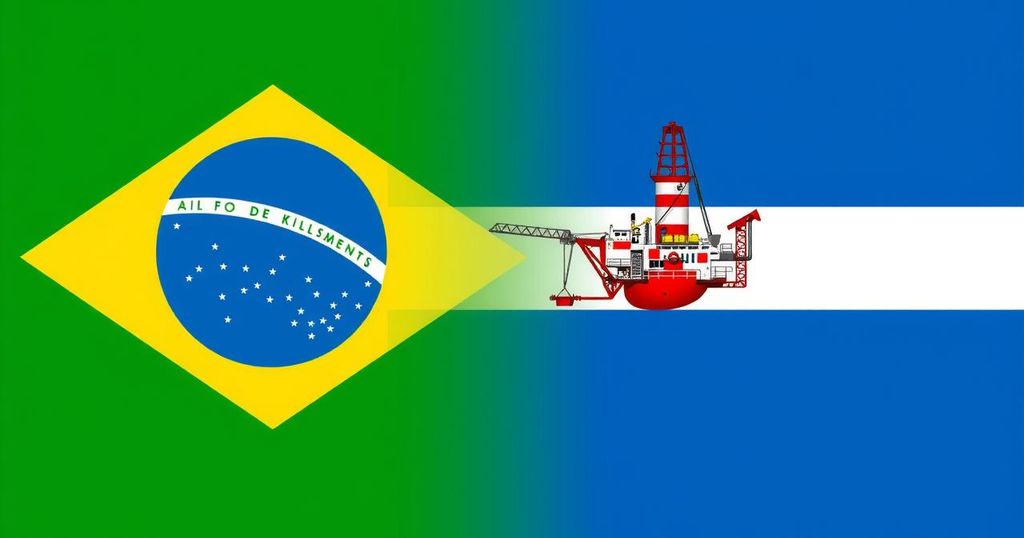Brazil and Argentina Collaborate on Natural Gas Export Studies from Vaca Muerta

Brazil and Argentina signed an agreement on November 18, 2024, to explore natural gas exports from Argentina’s Vaca Muerta formation. The deal could lead to Brazil importing up to 30 million cubic meters of gas per day by 2030. A working group will assess necessary infrastructure and possible transport routes, including Bolivia, Paraguay, and Uruguay, along with a direct connection at Uruguaiana.
On November 18, 2024, Brazil and Argentina formalized an agreement to assess the feasibility of developing infrastructure for natural gas exports from Argentina to Brazil. This initiative focuses on gas from the Vaca Muerta formation, known for its vast shale gas reserves. Brazilian officials project that imports could reach 30 million cubic meters per day by 2030, with an initial potential of 3 million cubic meters per day. A joint working group will evaluate necessary steps and potential transport routes, including options involving Bolivia, Paraguay, and Uruguay, as well as a direct connection at the border city of Uruguaiana. This agreement addresses Brazil’s increasing need for gas, as domestic production is insufficient to satisfy rising demand. President Luiz Inacio Lula da Silva has prioritized augmenting gas supplies to support Brazil’s energy requirements. The Vaca Muerta formation, managed by Argentina’s state oil company YPF, is pivotal for Argentina’s ambitions to enhance its status as a significant energy exporter. Furthermore, the Brazilian Ministry of Mines and Energy emphasized the importance of efficiently analyzing transport solutions to ensure the viability of this gas supply from Argentina. The collective focus on these efforts underlines the potential impact that favorable gas trade relations could have on energy strategies in both nations, reflecting a collaborative approach towards shared energy challenges in the region.
The agreement stems from Brazil’s increasing energy needs juxtaposed against its limited domestic natural gas production. The collaboration centers on Argentina’s Vaca Muerta formation, an internationally recognized reserve with significant shale gas and oil potential. The discovery of this resource positions Argentina favorably on the global energy stage, seeking to transform itself into a leading energy exporter. Brazil’s government aims to stabilize and enhance its energy sources through international partnerships, particularly as fossil fuel demand escalates. This partnership signifies a strategic maneuver to strengthen economic ties in South America while addressing critical energy supply issues.
The agreement between Brazil and Argentina represents a crucial step in addressing energy supply challenges through international cooperation. By focusing on the Vaca Muerta formation, both nations are looking to leverage Argentina’s substantial natural gas reserves to meet Brazil’s surging demand. The formation of a working group to analyze potential transport routes and establish a viable supply chain underscores the commitment to enhancing energy security and fostering regional collaboration in South America.
Original Source: www.worldpipelines.com








